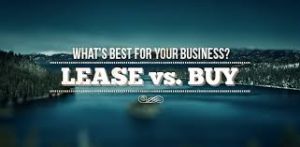 One of the questions I’ve been getting a lot lately is, “Is it better to lease a car for business purposes and can I claim the lease payments on my taxes?”
One of the questions I’ve been getting a lot lately is, “Is it better to lease a car for business purposes and can I claim the lease payments on my taxes?”
The short answer is: Yes to both.
The more detailed answer is: …but there are caveats to how you can claim the deductions.
Leasing a new automobile is a great idea if you put a lot of miles and wear and tear on your vehicle for business travel, but as with most tax issues there’s a lot of “mental wear and tear” that go along with how to list these deductions.
Here’s the basic “run down” of how to best go about claiming the lease for business purposes on your taxes:
1. Keep meticulous records of the business miles versus the personal miles you put on your vehicle. You can only deduct the percentage of the lease payment based on the business miles traveled and may not include any personal use miles.
2. Leases can require down payments. If yours requires one, the deduction for the down payment amount has to be spread out over the terms of the lease rather than being deducted all at once.
3. There’s an annual limit to the amount you can claim for your lease. If the amount of the lease payments claimed as business expenses is more than that limit, your deductions may have to be reduced. (Talk to your tax advisor about what that annual limit is.)
4. You can determine the amount of your car lease tax deductions one of two ways: calculating your actual expenses or using the standard mileage rate.
Calculating actual expenses consists of knowing the legitimate costs of the maintaining of the vehicle for business purposes (gas, oil changes, tires, repairs, etc.) as well as any other mandatory fees such as registration, licenses, insurances, lease payments and the like.
To use the standard mileage rate, there are, of course, certain criteria you have to meet in order to use this option, including using the standard mileage rate for the entire length of the lease period and for renewals as well as the cents per mile rate for the current tax year.
But make no mistake about it, there are other “musts and must nots” to keep in mind when going with the standard mileage rate that would best be discussed with your tax advisor.
Let us help you take the guesswork and the stresswork out of filing your taxes so you can stay focused on what you do best: running your business. It’s what we do best!

